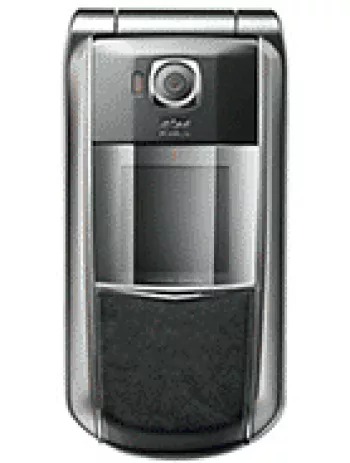
Asus Zenfone Go ZC500TG Overview
The Asus Zenfone Go ZC500TG, released in August 2015, is a budget-friendly smartphone that gained popularity for its decent specifications and affordable price. Although it has been discontinued, understanding its features provides insight into value-driven technology during its time of release.
Design and Build
The Zenfone Go ZC500TG features a practical design with a plastic back and frame, providing durability at a low cost. The dimensions of the device are 144.5 x 71 x 10 mm, and it weighs 135 grams, making it relatively compact and lightweight compared to many modern smartphones. The front of the device is made of glass, providing a basic level of protection for the display.
Display
The device sports a 5.0-inch IPS LCD display with a resolution of 720 x 1280 pixels. This translates to a pixel density of around 294 pixels per inch, ensuring reasonably sharp and clear visuals for day-to-day usage. The 67.2% screen-to-body ratio indicates a moderate bezel presence around the display.
Performance
The Asus Zenfone Go ZC500TG is powered by a Mediatek MT6580 chipset built on a 28 nm process. It includes a quad-core 1.3 GHz Cortex-A7 CPU, paired with a Mali-400MP2 GPU. This combination was adequate for running most apps smoothly and handling everyday smartphone tasks, though it may struggle with demanding games and multitasking due to its modest hardware capabilities.
Memory and Storage
The smartphone is available in two storage variants: 8GB and 16GB, both equipped with 2GB of RAM. The internal storage is expandable via a dedicated microSDXC slot, allowing users to increase storage capacity as needed. The 2GB RAM allows for decent performance in light multitasking scenarios and basic applications.
Camera
Main Camera
The rear camera is an 8 MP shooter with an f/2.0 aperture and autofocus. It also includes an LED flash and is capable of recording 1080p videos at 30 frames per second. While not particularly impressive by today's standards, it provided satisfactory photo quality for a budget device released in 2015.
Selfie Camera
The front-facing camera is a basic 2 MP sensor with an f/2.4 aperture, offering simple functionality for video calling and basic selfies.
Battery
The device is equipped with a removable Li-Po 2070 mAh battery. This meant users could easily replace the battery if needed, extending the life of the phone. The battery capacity was adequate for getting through a day of average usage, given the efficient power consumption of the hardware.
Connectivity and Features
Network
The phone supports dual SIM functionality with GSM and HSPA network compatibility. The maximum speed it supports is HSPA 42.2/5.76 Mbps, which was standard for mid-range devices in its time.
Other Connectivity Options
The Zenfone Go comes with Wi-Fi 802.11 b/g/n, Bluetooth 4.0 with A2DP support, GPS positioning, and FM radio. It also includes a microUSB 2.0 port for data transfer and charging. Notably, the device lacks NFC support, which was less critical in 2015 than today.
Sensors
The phone includes essential sensors such as an accelerometer, proximity sensor, and compass, providing basic functionality for a variety of applications.
Operating System
The device runs on Android 5.1 Lollipop, which was a common version at the time of its release. While now dated, this OS provided a clean interface and access to a wide array of applications from the Google Play Store.
Price and Availability
The Zenfone Go ZC500TG was priced at approximately 130 EUR during its market tenure, making it an attractive choice for budget-conscious consumers seeking a reliable smartphone. It was available in several colors, including Black, White, and Red.
Conclusion
The Asus Zenfone Go ZC500TG served as a testament to affordable yet functional technology. It was equipped with the necessary features to satisfy the average user's needs at the time of its release. While it may not compete with contemporary smartphones regarding performance and features, it represented a balanced and cost-effective choice during its period, with emphasis on functionality over flair.
Main Features of Asus Zenfone Go ZC500TG
- Supports Dual SIM (Micro-SIM, dual stand-by)
- Wide 5.0 inches IPS LCD with a resolution of 720 x 1280 pixels
- Powered by Mediatek MT6580 chipset with Quad-core 1.3 GHz CPU
- 8 MP main camera with LED flash, capable of 1080p@30fps video recording
- 2 MP front camera for selfies
- Expandable storage via microSDXC, with options for 8GB or 16GB internal storage
- Equipped with essential connectivity options: Wi-Fi b/g/n, Bluetooth 4.0, and microUSB 2.0
- Removable Li-Po 2070 mAh battery
- Includes FM radio and a 3.5mm jack for audio
- Lightweight at 135 g with a compact design
Cons of Asus Zenfone Go ZC500TG
- Limited network technology: only supports GSM and HSPA, lacking LTE support.
- Discontinued status, meaning no longer receiving official updates or support.
- Thick body dimension at 10 mm, which might feel bulky compared to modern smartphones.
- Outdated Android version (5.1 Lollipop), lacking new features and security updates from latest Android versions.
- Entry-level Mediatek MT6580 chipset, which may not handle demanding applications smoothly.
- Low internal storage options: only 8GB or 16GB with 2GB RAM, potentially inadequate for users requiring more storage without frequent management or a microSD card.
- Basic camera capabilities with only an 8 MP main camera and a 2 MP front camera.
- No NFC support, limiting mobile payment options.
- Low battery capacity at 2070 mAh, which may not last a full day with moderate to heavy use.

View Also
More Phones
All Rights Reserved +14267 Phones © Mobilawy 2025

























